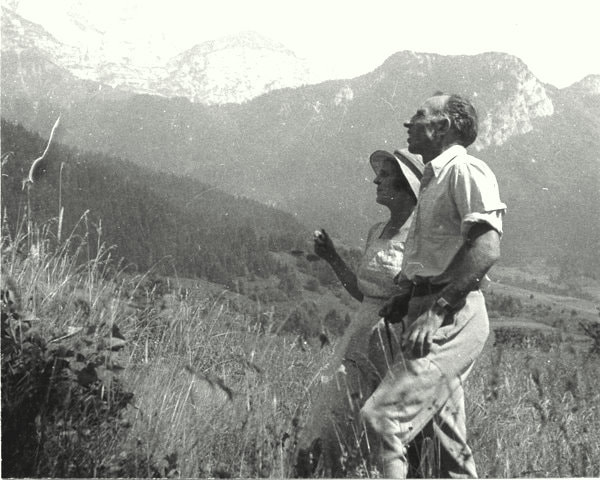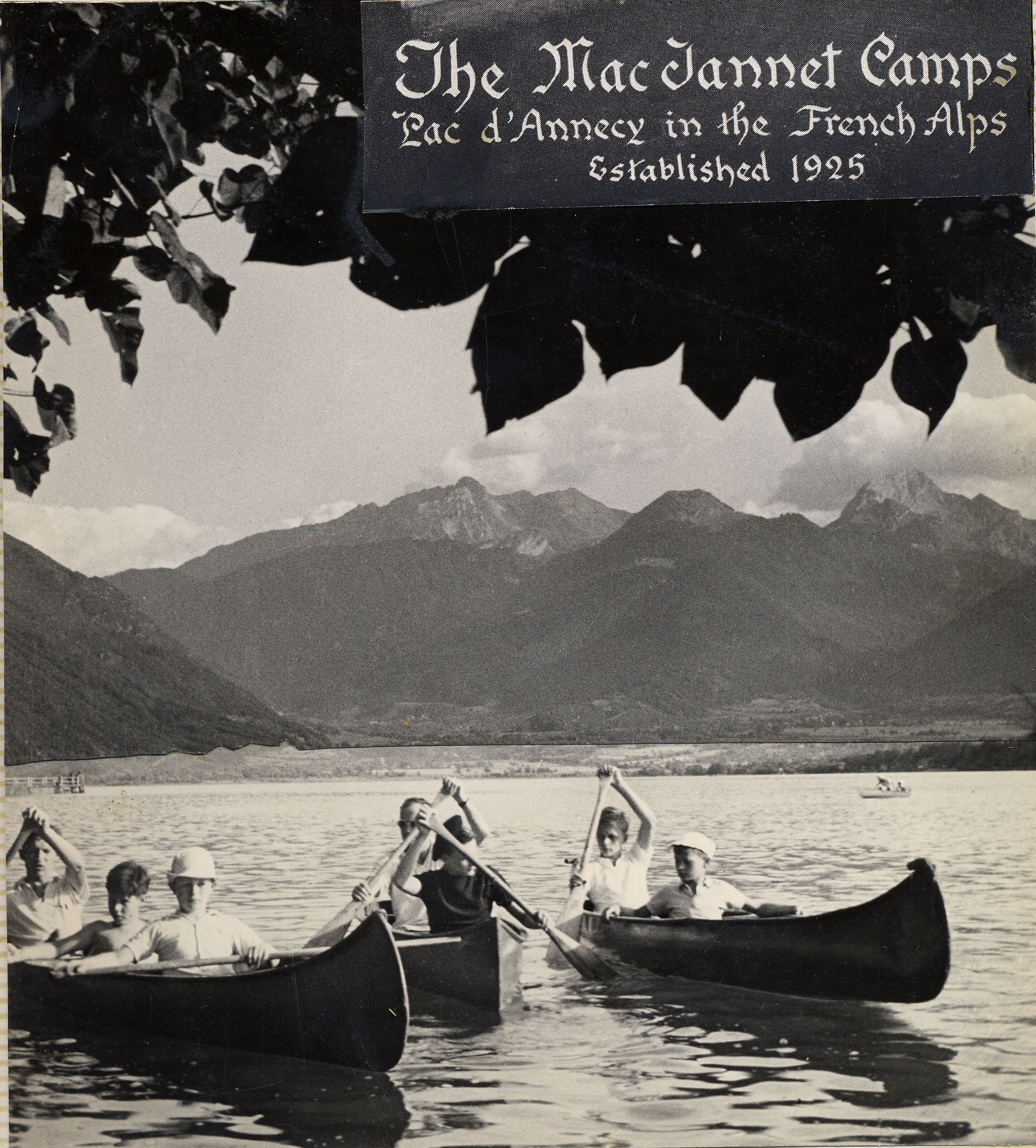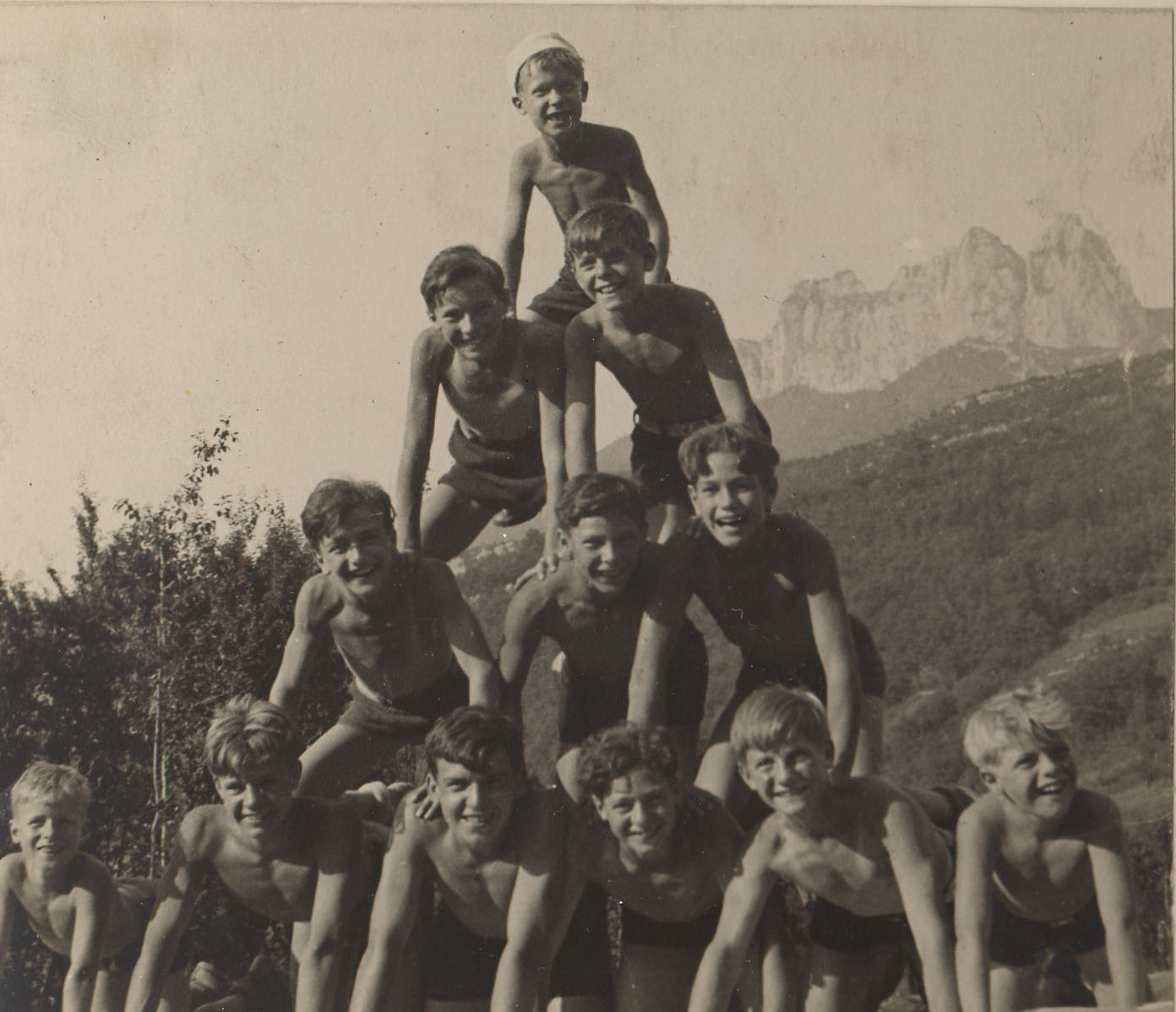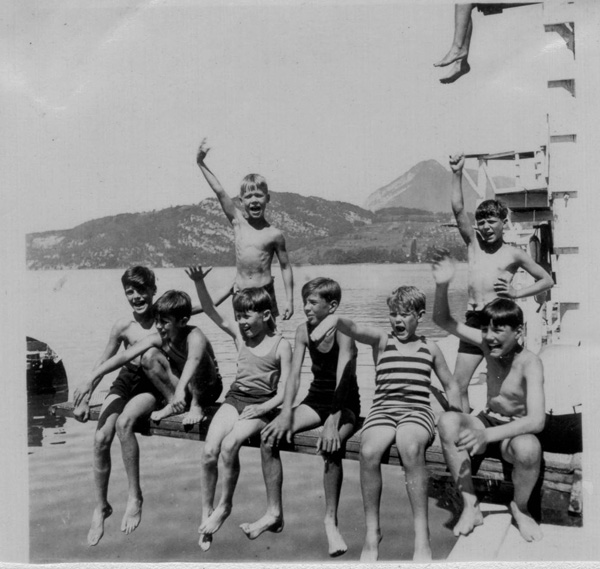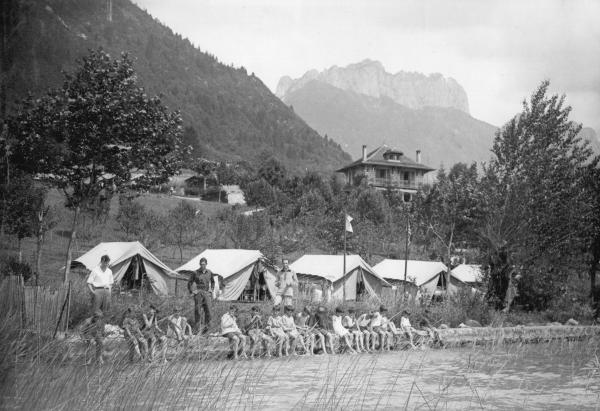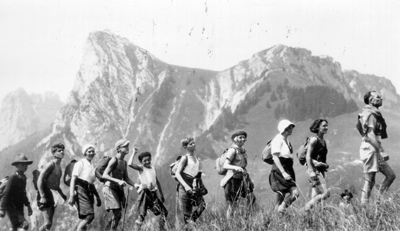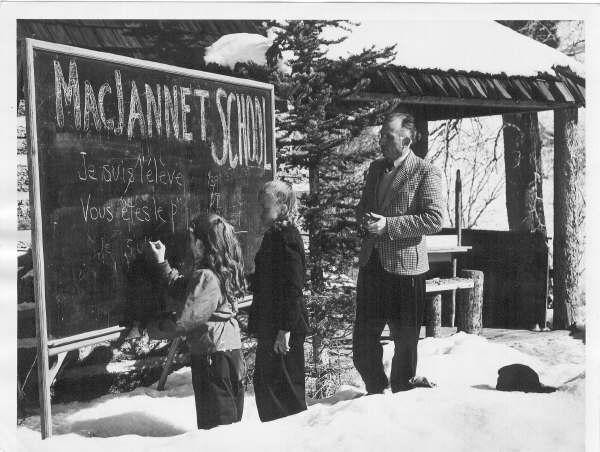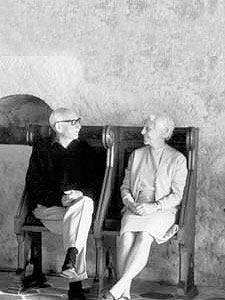MacJannet Legacy
At the heart of the MacJannet legacy are the values of international exchange, personal growth, and cultural understanding. These are the ideals that Donald and Charlotte MacJannet lived and taught as they created structured, educational experiences for youth and adults that promoted hard work and discipline, mutual respect, experiential learning, and cultural exchange.
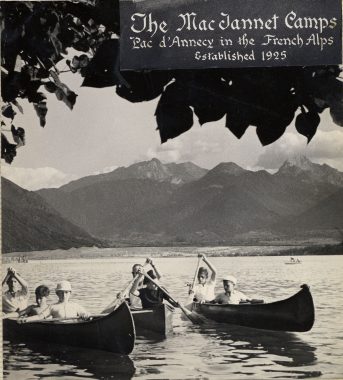
A native New Englander, Donald MacJannet did not initially seem destined to be the friend and educator of world leaders, nor the donor of an ancient priory. He was born in 1894 in Sterling, Massachusetts to Robert McJannet, a fundamentalist Scottish-born minister, and Irene Waters, of old New England ancestry. Donald was orphaned at age 15 and was sent with his sister to live with a family friend in Medford, Massachusetts, not far from Tufts College (as it was known at the time). She was a widow of modest means, and MacJannet became the sole supporter of not only his younger sister, but also of the woman and her son.
MacJannet attended Tufts, partly on scholarship, and partly through his own propensity for earning his keep, working after school as a church janitor and cookware salesman. MacJannet thrived at Tufts, and in many ways, the college became his family. He won a varsity letter for track, sang in the glee club, and took up languages – French, German, and Latin. When he graduated Phi Beta Kappa in 1916 with a degree in French literature, his classmates bestowed on him a rare distinction, voting him both Class Day and Commencement Orator.
After his graduation from Tufts in 1916, MacJannet worked briefly at the St. Albans School in Washington, D.C. before joining the military to serve as a pilot in WWI. After the war, he went to Paris to continue his studies at the Sorbonne. While in Paris, MacJannet began providing lessons to the children in the expatriate community who, because they were foreigners, were not allowed to join the French school system. In Paris, MacJannet discovered that his real passion was teaching and, in 1924, he founded his first school, the MacJannet School for Young Americans, just outside Paris.
With the success of his school, he was inspired to create an American-style summer camp for his students and, in 1925, he acquired a piece of land at Angon/Talloires on Lake Annecy in Haute-Savoie where he opened the MacJannet Summer Camps – Camp L’Aiglon for boys and Camp Alouette for girls. Camps such as these were then virtually unknown outside America. The MacJannet Summer Camps embodied MacJannet’s own philosophy of education, one that emphasized experiential learning while teaching teamwork and mutual respect.
In 1932, MacJannet met German-born Charlotte Blensdorf while attending a conference. Charlotte had been a student of Emile Jaques-Dalcroze, whose philosophy of movement and musical expression is known as eurythmics, and started her own school in Sweden after WWI. After hearing Charlotte talk about her school, MacJannet invited her to see his camps in Lake Annecy. Two months later, they were married.
The confluence of their philosophies made for a successful camp environment. They were devoted to young people and operated the camps from 1925 until 1964, closing them for a brief time during WWII when they used the camps to lodge French war orphans. Hundreds of children attended the MacJannet schools and camps over the years, including many prominent figures such as Prince Philip and Indira Gandhi.
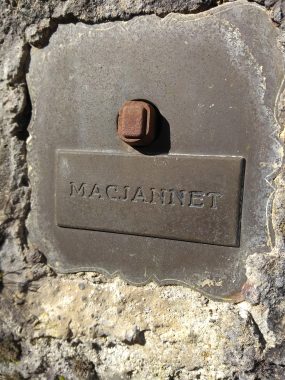 In 1958, as Donald was nearing retirement age, Charlotte, who was looking for a facility where she could teach her movement classes, heard that the old Talloires Priory was for sale by auction. The building was in ruins, having been abandoned for 150 years. Nonetheless, the couple saw great potential there as a place to bring people together for learning and exchange, a place that could be a positive force for world peace and prosperity. They purchased the building and, throughout the 1960s and into the 1970s, slowly and lovingly renovated it as they hosted educational sessions, concerts, and ecumenical conferences.
In 1958, as Donald was nearing retirement age, Charlotte, who was looking for a facility where she could teach her movement classes, heard that the old Talloires Priory was for sale by auction. The building was in ruins, having been abandoned for 150 years. Nonetheless, the couple saw great potential there as a place to bring people together for learning and exchange, a place that could be a positive force for world peace and prosperity. They purchased the building and, throughout the 1960s and into the 1970s, slowly and lovingly renovated it as they hosted educational sessions, concerts, and ecumenical conferences.
After his 80th birthday, Donald MacJannet started to think of the future of the Priory. Because of the strong allegiance to Tufts that he had maintained all his life, he began to imagine the building as part of Tufts’ educational mission.
Tufts President Jean Mayer shared Donald MacJannet’s vision for the Priory and on May 27, 1979, French Prime Minister Raymond Barre and a small group of academic, business, and government figures joined President Mayer in inaugurating the Tufts Center for European Studies.
Thanks to Donald MacJannet’s gift, the Tufts University European Center now serves not only Tufts undergraduates, but also college students, high school students, alumni, and professionals from around the world. It remains a place of international education and cultural exchange, a place such as the MacJannets dreamed it could be when they purchased it.
The MacJannets also worked with The Fletcher School of Law and Diplomacy at Tufts to create the first student exchange program for graduate students of international studies, which was launched in 1967 between Fletcher and the Graduate Institute of International Studies in Geneva, Switzerland. Consistent with their educational philosophy, the MacJannets donated funds to support fellowships for the one-year exchange and personally mentored the early Fletcher Fellows who attended the Institute and hosted them from time to time in their Geneva apartment and the Prieure in Talloires before it was donated to Tufts. For some years now, the Fletcher Fellows fund supports European students from many different graduate programs of international studies who enjoy an exchange semester or year at Fletcher.
The MacJannet legacy lives on through the MacJannet Foundation, founded by the MacJannets and their followers in 1968. The Foundation has provided annual MacJannet Scholarships and other support to the Tufts University European Center in Talloires for over forty years. In addition, the Foundation supports the Talloires Network, which is a growing global coalition of 431 university presidents, vice-chancellors, and rectors in 86 countries who have publicly committed to strengthening the civic roles and social responsibilities of their institutions. Today, the MacJannet Foundation works with the Talloires Network to co-sponsor the MacJannet Prize for Global Citizenship for exemplary university student volunteer programs throughout the globe and various other youth cultural exchange programs.
To read more about the MacJannets and their legacy, please visit the Tufts University Library Archives.
Programming in Talloires is supported by the generosity of friends and alumni like you! If you would like to make a donation, please click here.
